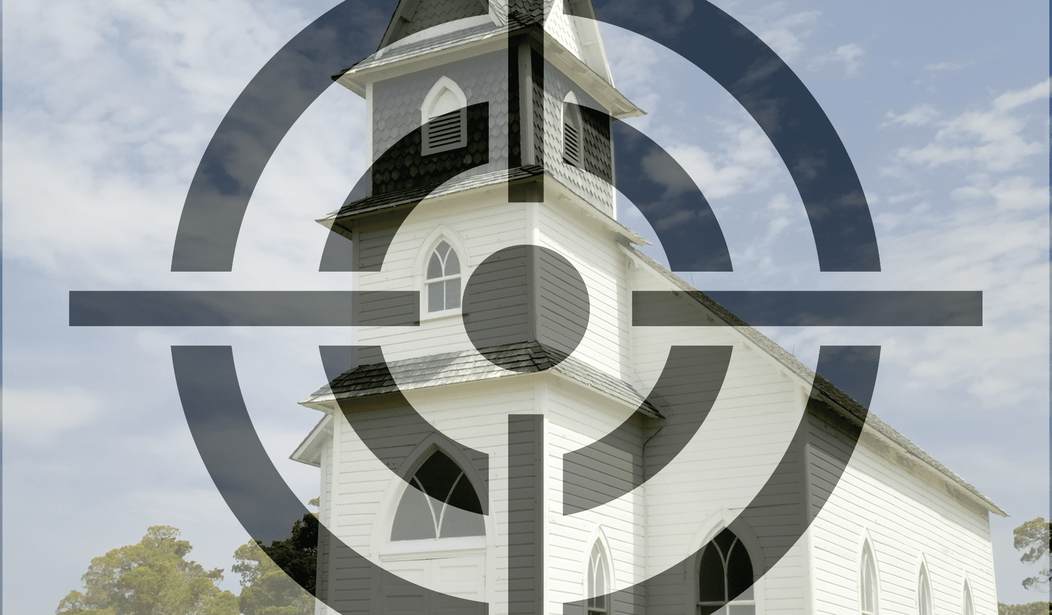WASHINGTON, D.C. — On Monday, Archbishop Edward Kurtz warned about a movement targeting faith-based adoption agencies for closure because of their religious beliefs. Kurtz spoke after Attorney General Jeff Sessions himself warned about such a movement during his announcement of a new DOJ religious liberty task force.
“A dangerous movement, undetected by many, is now challenging and eroding our great tradition of religious freedom,” Sessions declared. Kurtz explained one of the key targets of that movement: religious adoption agencies.
“Faith-based child welfare providers are being targeted for closure because of their religious convictions about the family,” Kurtz declared. The bishop noted that anti-discrimination laws in Illinois, Massachusetts, San Francisco, and Washington, D.C. led Catholic Charities to leave those areas, ceasing its adoption services because it would not place children with same-sex couples.
The Roman Catholic Church defines marriage as a lifelong union between one man and one woman, instituted by God. This view has led the prominent Southern Poverty Law Center (SPLC) to brand a Catholic organization a “hate group.”
Due to this belief, Catholic Charities will not place children with same-sex couples. But other adoption agencies will do so, and Catholic child welfare providers do not have a corner on the market. In this context, laws forbidding “discrimination” against same-sex couples amount to a declaration of war against Catholic Charities and other faith-based adoption agencies.
Kurtz compared this threat to the Obamacare HHS mandate, which “would have required people of faith to make an impossible choice between either paying impossible fines to the U.S. government or violating the very faith that inspired them to serve others.”
“We are asking for the space to serve with integrity,” the bishop explained.
Kurtz noted that the threat to faith-based adoption agencies is not limited to Illinois, Massachusetts, San Francisco, and D.C. “Recently, the ACLU sued the State of Michigan because Michigan has a law protecting the conscience rights of adoption and foster care providers,” he said. In explaining the suit, launched last September, the ACLU attacked conscience protections as driven by “anti-LGBT animus.”
Sadly, this unfair attribution of bad motives to faith-based charities and businesses is common, and has led one major LGBT donor to encourage activists to “punish the wicked.” The bishop pointed out, however, that Catholic Charities does not engage in adoption to “discriminate” against LGBT people. “Foster care is really a direct response to the command to care for the orphan,” he noted.
“Now is not the time to limit agencies. Intolerance for religious views has real consequences as vulnerable children suffer the most,” Kurtz declared.
LGBT activists argue that faith-based adoption agencies harm children by refusing to place them with same-sex couples, but in the aggregate, forcing these agencies to shut down removes far more options for needy children, since other agencies will gladly work with same-sex couples. Furthermore, religious agencies add a few more benefits secular agencies cannot.
Kurtz noted that faith-based agencies “can go directly into churches and invite people who share in their faith to serve in this way.” In Arkansas, the Christian nonprofit The CALL models this approach, going to churches to recruit families. According to its website, families recruited by The CALL “make up over half of all foster families in the state.”
With the need for adoption and foster care increasing due to the opioid crisis, the bishop called for “all hands on deck when it comes to tackling the greatest needs of our day.”
Kelly Clemente, a birth mom and volunteer at Bethany Christian Services in Virginia Beach, Va., told a moving story about how Christian adoption agencies can meet a spiritual need that secular agencies cannot.
Clemente recalled really wanting a sister, but her mother could not have another kid. “My parents and I had an excess of love,” so they adopted a sister, and she “grew up very pro-adoption.”
At 18 years old, Clemente found herself pregnant, and decided to keep the child and give it up for adoption. She chose the closest agency, which she only later realized was Bethany Christian Services. “I thought, should we turn around? They’re going to judge me, this is awful.”
“But I showed up and I walked in and I can honestly say that I was immediately met with respect and grace and I know now that I was met with love, a love that I didn’t deserve,” she said. The woman who helped her “never pushed religion down my throat.”
More importantly, she encouraged Clemente when she most needed it. “When I broke down in her office one day and told her that God hated me, she said, ‘No, He doesn’t,'” the mother said. “I don’t know that that would have happened at a secular adoption agency.”
Adoption and foster care agencies help the most vulnerable among us. Both Clemente and Kurtz called for “all hands on deck,” more options for kids who need foster and adoptive families.
If “anti-discrimination” laws push faith-based child welfare providers out of the business, it won’t just harm religious freedom. It will leave needy kids out in the cold.









Join the conversation as a VIP Member